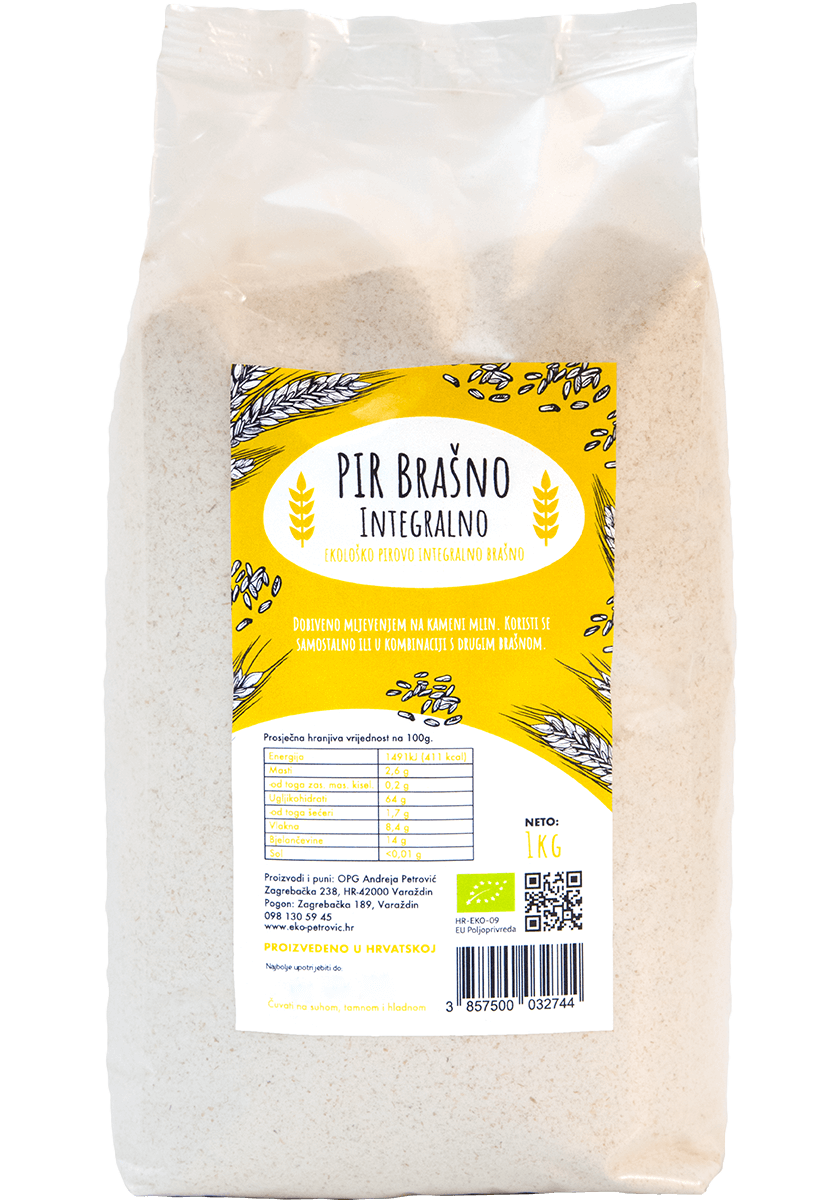
Spelt Flour Integral, 1 kg
Ecological product
Nutritional value per 100 g:
Energy: 1491 kJ (353 kcal)
Fat: 2,6 g; of which saturates: 0,2 g
Carbohydrate: 64 g; of which sugars: 1,7 g
Fibre: 8,4 g
Protein: 14 g
Salt: < 0,01 g
Spelt (lat. Triticum spelta) is a cereal that is a precursor of today's wheat. It is also called krupnik, dinkel or spelt. Spelt originated in Asia where it was cultivated as early as 5,000 BC. Today, its popularity is growing all over the world because it is an original grain that is not industrially modified. Unlike wheat, it has husks around the grain, which makes it significantly more protected at the expense of grain size. Unlike wheat, it is easier to digest and more nutritionally rich. Spelt gluten has completely different properties from wheat gluten, and does not adversely affect health.
Spelt has a beneficial effect on digestion. It improves bowel function and generally has a good effect on the digestive system. Insoluble fiber has a beneficial effect on intestinal peristalsis / movement of food through the intestines /. Soluble fiber serves as food for the beneficial intestinal microflora, improving gluten breakdown and nutrient absorption. This prevents many digestive difficulties such as bloating, flatulence, diarrhea, constipation.

